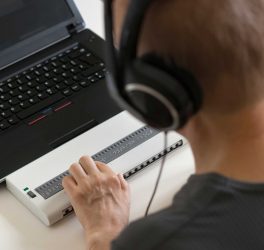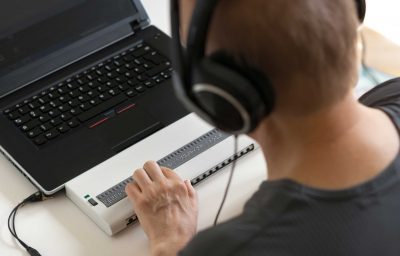
Researchers from TRIAD have been awarded $1 million to evaluate a new mobile app designed to help pediatricians recognize autism risk in young children.
The app, named Autoscreen, walks pediatric providers through a short series of play activities and guides them through a set of observations designed to calculate a child’s autism risk.
“The American Academy of Pediatrics recommends a screening for autism at ages 18 and 24 months. There are a lot of tools on the market that allow pediatricians to do that — most of which are a paper-and-pencil parent report,” said Amy Weitlauf, PhD, assistant professor of Pediatrics and an investigator for the study.
Autoscreen takes less than 20 minutes to complete and provides a low-cost, easy-to-use, guided tool to help providers make decisions regarding risk and lead conversations with families.
Instructions for each activity, including a timer for how long each activity should last, are fed audibly to the provider through a Bluetooth earpiece so they don’t have to hold the tablet while interacting with the child. It also works through a Bluetooth wireless presentation remote so providers can jump between activities.
The algorithm for the screener, developed for the Vanderbilt Kennedy Center Treatment and Research Institute for Autism Spectrum Disorders (TRIAD) by Joshua Wade and Nilanjan Sarkar, PhD, who both have ties to the Vanderbilt University School of Engineering and who co-founded Adaptive Technology Consulting, was created by conducting an advanced computational analysis of a dataset of gold-standard evaluation tools and clinical observations of more than 700 children evaluated for autism by TRIAD clinicians.








